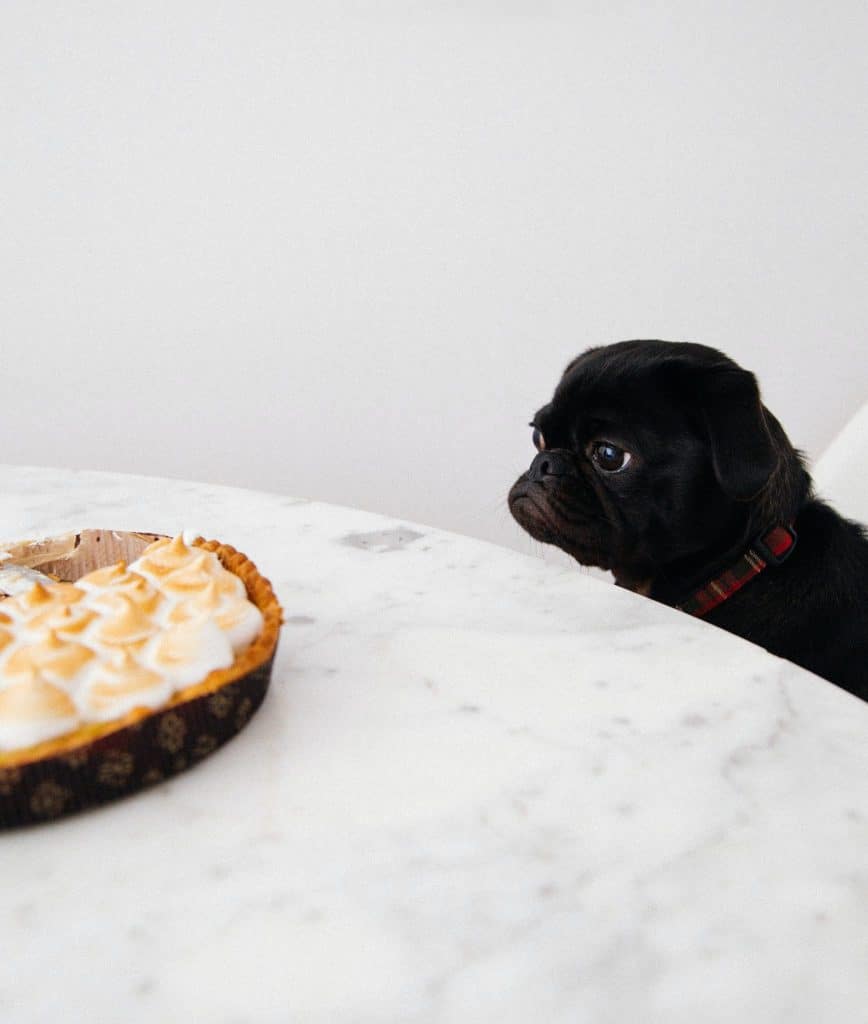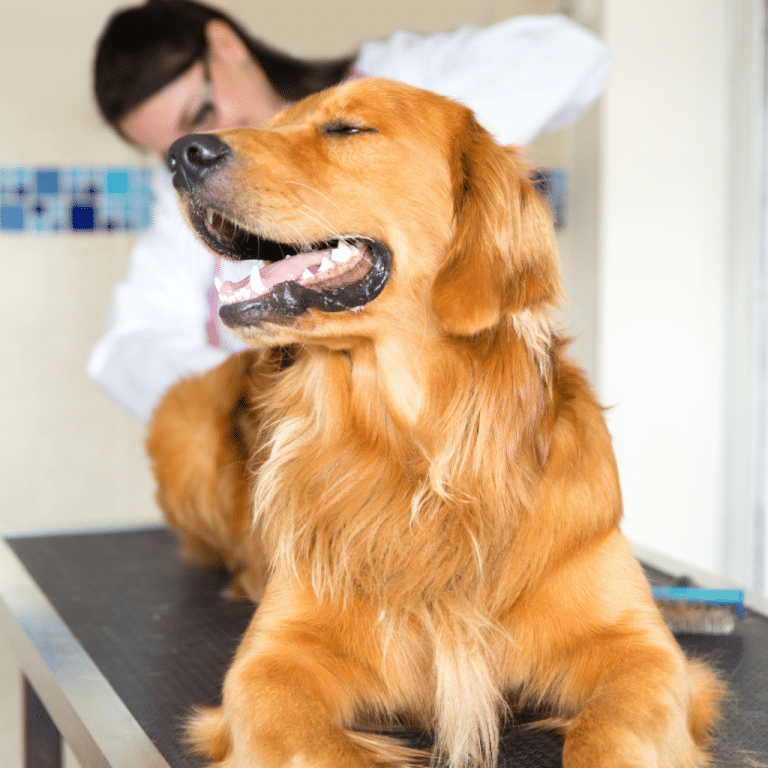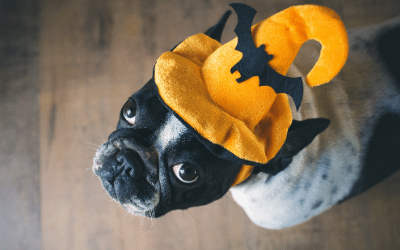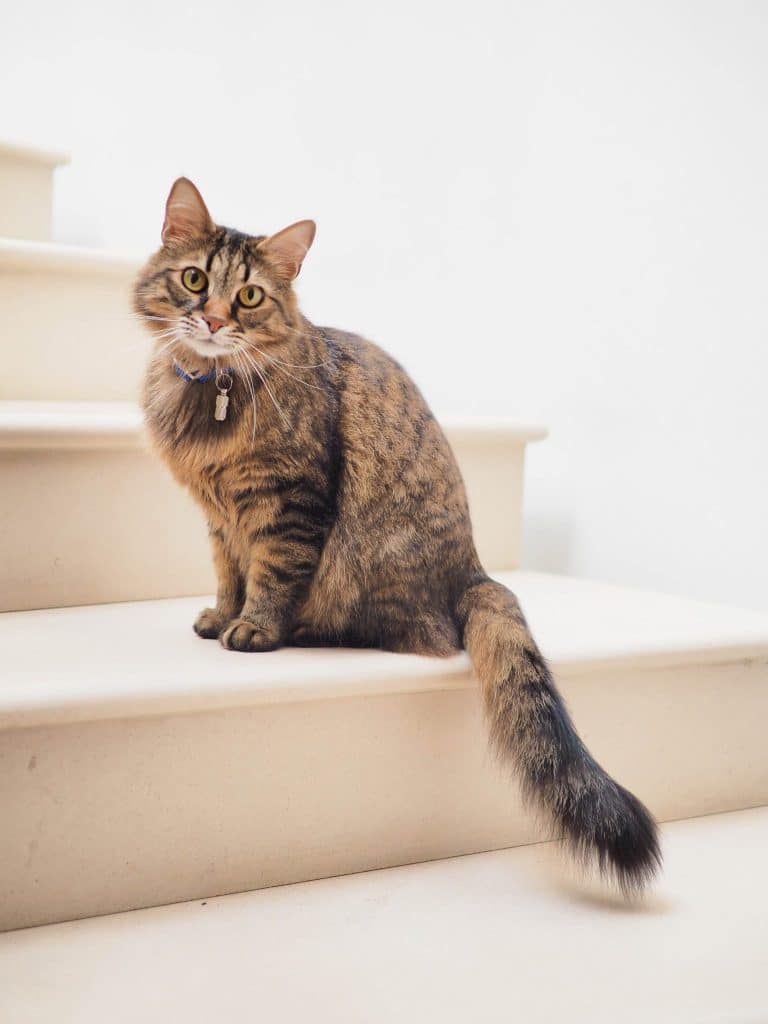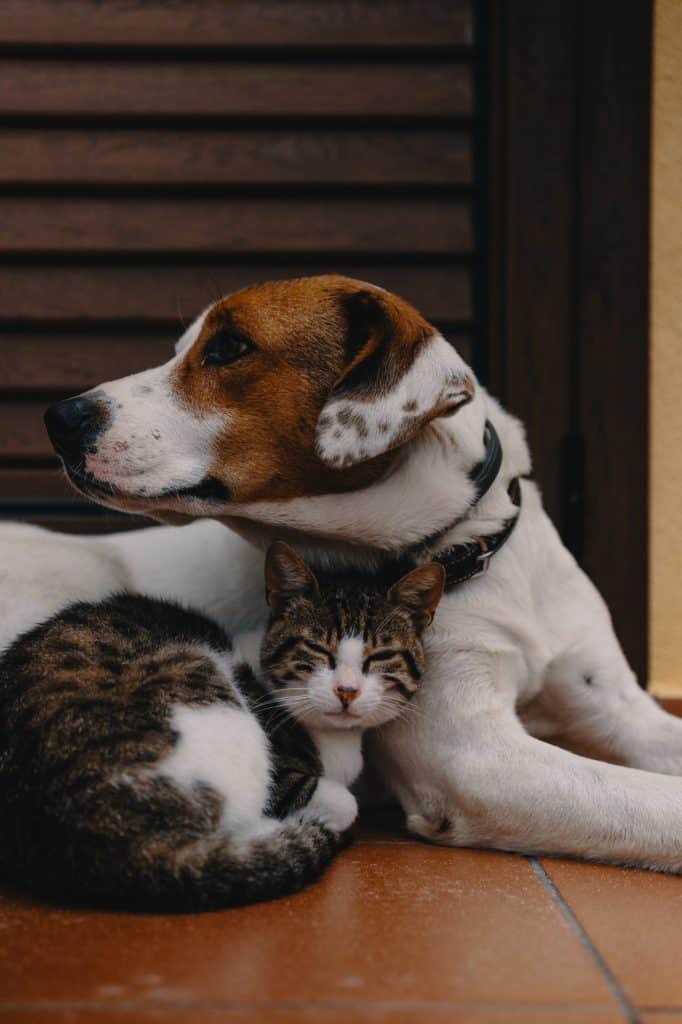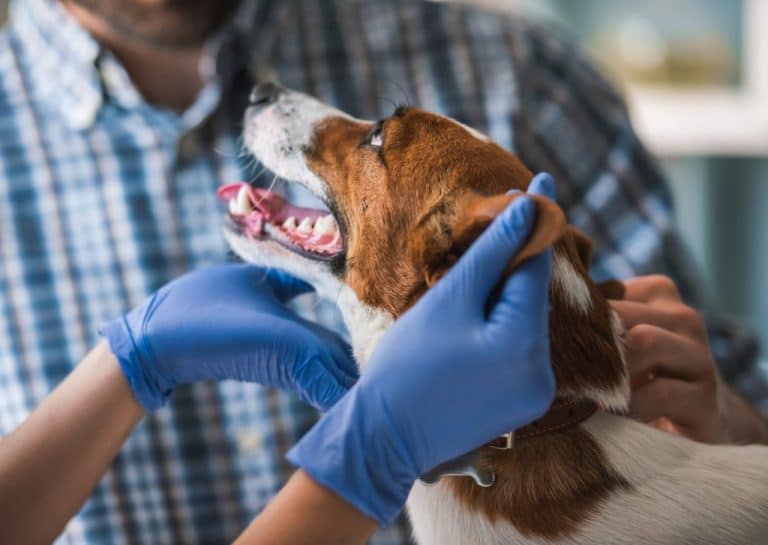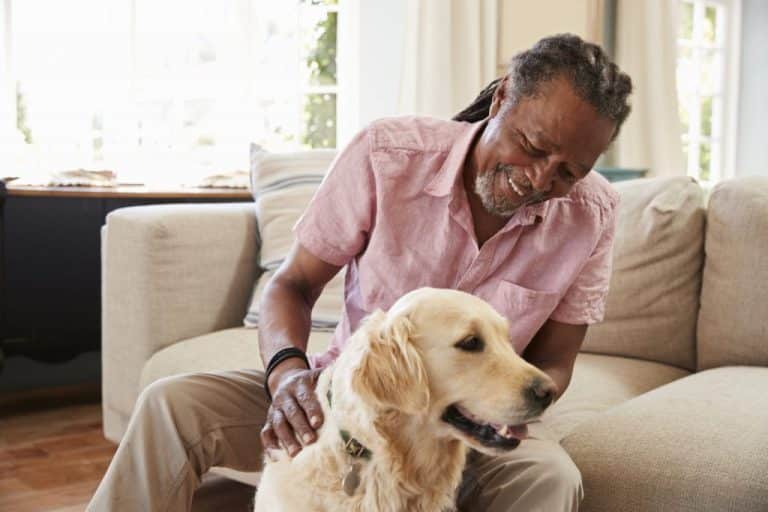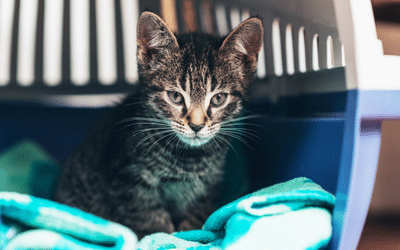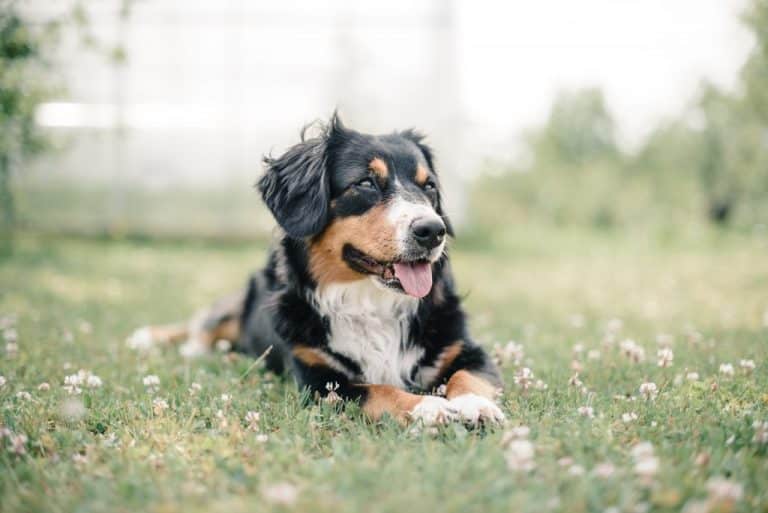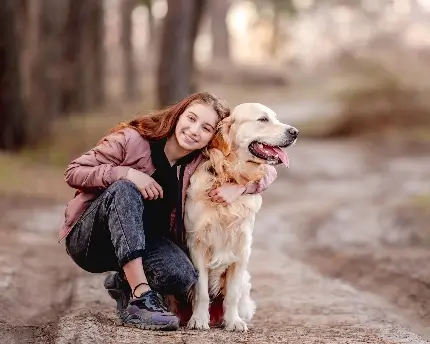At Beach Avenue Animal Hospital, we want to help make sure you and your pet enjoy the holidays. While you’re celebrating the season, keep these potential pet hazards in mind.
Human Foods
You may be tempted to share your holiday fare with your pet, but some of the food we consume is dangerous—and can sometimes be deadly—for dogs and cats. Table scraps in particular can cause serious issues, including pancreatitis (a serious, potentially deadly inflammation of the pancreas).
Avoid feeding your pet any of these items:
- Alcoholic beverages—Alcohol affects pets very quickly and can cause serious medical issues, like drops in body temperature, seizures, and even respiratory failure and death.
- Anything with xylitol—Baked goods, peanut butter and other nut butters, sugar-free candies or mints, and gum may all contain this sugar substitute. Xylitol in even small amounts can cause vomiting, weakness, a decrease in blood sugar (hypoglycemia), and seizures or liver failure.
- Bones—Raw or cooked, bones just aren’t worth letting pets chew on. They can break teeth, cut a pet’s mouth and tongue, get stuck in the throat, and even pierce the esophagus or intestines, which can be life-threatening.
- Chocolate—The darker the chocolate, the more danger it poses, but chocolate in any form can make dogs or cats quite ill.
- Fatty or salty foods—Bacon, bacon grease, ham, turkey skin, and fat trimmed off meat or bones contains a lot of salt and fat and can cause indigestion, vomiting, and diarrhea in both dogs and cats. These foods can also cause pancreatitis.
- Grapes and raisins—For some pets, consuming just a few grapes or raisins may be very serious, potentially causing kidney failure or death if not treated quickly.
- Macadamia nuts—It only takes a few of these nuts that are popular around the holidays to make a dog very sick.
- Onions and garlic—Any form of onions or garlic (or their relatives chives, scallions, shallots, and leeks) can destroy red blood cells, causing anemia in both dogs and cats.
- Raw dough—The yeast in unbaked dough will continue to rise inside a pet’s stomach and can lead to bloat (gastric dilatation and volvulus), a life-threatening condition in pets in which the stomach expands as it fills with gas, food, or fluid and twists over on itself. Raw dough can also cause alcohol poisoning.
- Turkey, chicken, or other meat that’s been seasoned—Most turkey and chicken cooked around the holidays has been brined and/or contains butter and seasoning, all of which can cause digestive problems and even pancreatitis in cats and dogs.
Call us right away if you think your pet has consumed something toxic. After hours and over holidays, you can call the Pet Poison Helpline at 855-764-7661 or ASPCA Animal Poison Control Center at 888-426-4435 (both will charge a fee).
Remember that even the most normally well-behaved dogs and cats may not wait for an invitation to snatch up a tasty-looking treat from a countertop or off a guest’s plate during holiday gatherings. Help keep your pet safe by:
- Warning guests to keep their plates out of your pet’s reach.
- Covering snacks and other food if it’s sitting out.
- Covering or putting away food right after a meal to prevent your pet from getting into leftovers or table scraps.
Holiday Plants
Although plants play a big part in the holiday season, some festive flowers and greenery may be better left out of your holiday decorating—or at least far out of your pet’s reach. The following plants are toxic to both dogs and cats:
- Amaryllis bulbs (the flowers and leaves are less toxic)
- Holly berries and leaves
- Lilies
- Nandina berries (also called sacred or heavenly bamboo)
- Oleander (including water in the vase)
On the other hand, some holiday plants tend to be less of a concern:
- Poinsettias aren’t actually very toxic to dogs and cats. The sap can cause drooling, diarrhea, and vomiting, but these flowers generally don’t pose a more serious danger to pets.
- Mistletoe typically only causes similar mild digestive issues, although ingesting large amounts can cause much more serious problems in pets (including death).
- Christmas cactus also generally doesn’t cause more than mild digestive issues.
Even though some holiday plants may not pose as much of a risk, it’s always a good idea to restrict your pet’s access to these plants.
Other Decorations
Unfortunately, a number of common holiday decorations can also put pets at risk:
- Christmas trees should be secured to prevent pets from knocking them over during play or in case pets try to jump or climb on the branches.
- Needles from trees, wreaths, and other greenery can irritate pets’ mouths and stomachs, and needles can potentially puncture the intestines or cause a blockage.
- Water in tree stands can be toxic to pets, especially if it contains additives/preservatives.
- Electric lights can burn or electrocute pets if they chew the cord. Consider hiding or pet-proofing cords, especially if your pet likes chewing them.
- Ornaments can cause problems if they break or are swallowed. If you display breakable ornaments, keep them toward the top of the tree (which may not stop a determined cat) or in an area your pet can’t access.
- Long, thin objects like tinsel, ribbon, yarn, and even the twine used to truss a turkey for a holiday feast can pose serious, potentially life-threatening issues if a dog or cat swallows them.
- Candles and liquid potpourri can cause burns or worse if they get knocked over by an excited pet’s tail. They’re also usually toxic if ingested. Keep these sweet-smelling items out of reach of your pet, unplug them when you leave the house, and consider limiting their use or using electric candles instead.
- Some essential oils (tea tree in particular) can be dangerous for pets if they ingest, walk through, or lick off concentrated forms. Although an oil diffuser isn’t likely to cause a problem for most pets, it can become dangerous if the oil is spilled or if your pet has any breathing difficulties.
Be especially careful and attentive with holiday decorations if you have a puppy or kitten in the house and you don’t yet know what your new pet likes to chew on.
Keep the Holidays Safe for Your Pet
Don’t hesitate to ask us if you have any questions about pet holiday safety, and call us right away if your pet gets into anything that could be dangerous. Don’t wait for your pet to develop symptoms, and don’t induce vomiting, unless your Beach Avenue veterinarian or an emergency veterinary expert recommends it. We want to help make sure your pet stays safe and gets to enjoy the holiday season too!

